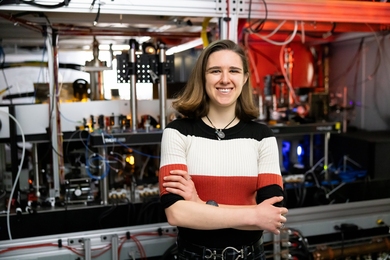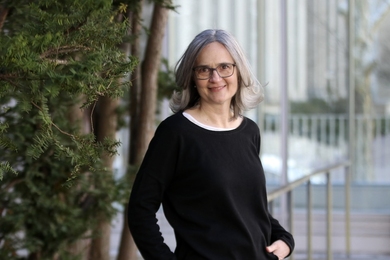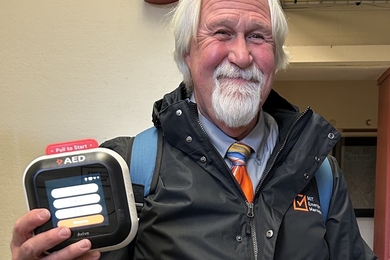The Urban Studies and Planning department will focus on developing its undergraduate program in the coming years, according to the new department head Professor Bishwapriya (Bish) Sanyal.
Professor Sanyal, who assumed the post effective November 1, plans to offer more undergraduate courses to train students in how to deal with today's urban problems and issues and to attract more students to do graduate work in the field.
An informed citizen should have to take a position on urban issues, Professor Sanyal said. "And coming from MIT, these students will be leaders."
Professor Sanyal also hopes to bolster undergraduate advising and get more faculty involved in the process. "We will build the undergraduate program, but not at the expense of the masters and PhD program," he said.
Professor Sanyal's background and interest in education in the field of planning, dates back to the days of his doctoral studies. At that time, he worked on a book with Harvey Perloff, an urban regional economist, about domestic planning education.
He is currently a member of a national commission looking at doctoral planning education and is a member of the editorial board for the Journal of Planning Education and Research.
Professor Sanyal was appointed as department head to succeed Professor Philip Clay, who was appointed associate provost in October. Professor Clay had led the department since 1992. The appointment was made by Professor William Mitchell, dean of the School of Architecture and Planning, after consultation with an advisory committee formed in September and chaired by Associate Dean Bernard Frieden.
"Bish Sanyal is a highly respected scholar with some exciting ideas about the future of urban planning," Dean Mitchell said. "He has the skills and the energy needed to lead DUSP forward at a particularly challenging moment for this field. I very much look forward to working with him in the coming years."
Professor Sanyal's current research interests include the efficiency of city and state governments and the people that operate them and how people-such as the urban poor-earn a living without a formal job. With respect to the latter, Professor Sanyal is trying to develop ways to assist the people who are earning money in the informal sector.
"In the United States, urban problems have become very severe," Professor Sanyal said. He cited issues such as housing affordability, homelessness, crime, AIDS and unemployment. "As the world becomes more internationally integrated, urban problems also become more intractable. On top of this, grants to cities have gone down and taxes are being cut, but these problems are still there and growing."
It used to be that the US and other Western countries would always be the parties directing developing countries in how to solve their problems, Professor Sanyal said. "Now things are changing and we are learning from some of these countries how to solve some of our problems."
Professor Sanyal commented that he thinks part of the reason he was selected as chair was his idea that developing and developed countries can and should teach each other about the solutions to these global issues.
Professor Sanyal wants the Department of Urban Studies and Planning to help round out the intellectual training of MIT students and hopes to interest engineering students, not just social science students. "They bring a very different set of mind," he said.
The blending of technical knowledge and institutional knowledge-how to get things done-is what Urban Studies is so good at, he added.
After completing his bachelor's degree in architecture at the Indian Institute of Technology, Professor Sanyal earned an MS in urban planning from the University of Kansas at Lawrence and PhD in urban and regional planning from University of California at Los Angeles. Professor Sanyal ran a low-income housing program in Africa for the World Bank. He has consulted for a number of international agencies including the United Nations, the United States Agency for International Development, the International Labor Organization and the Ford Foundation. He is a member of the Center for International Studies.
A version of this article appeared in the November 30, 1994 issue of MIT Tech Talk (Volume 39, Number 13).





